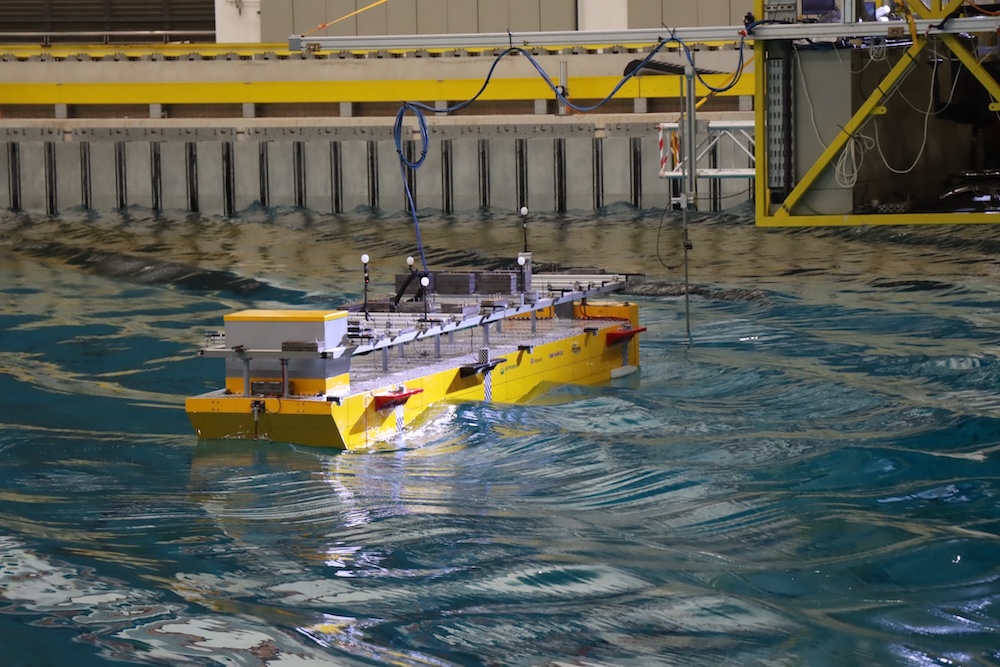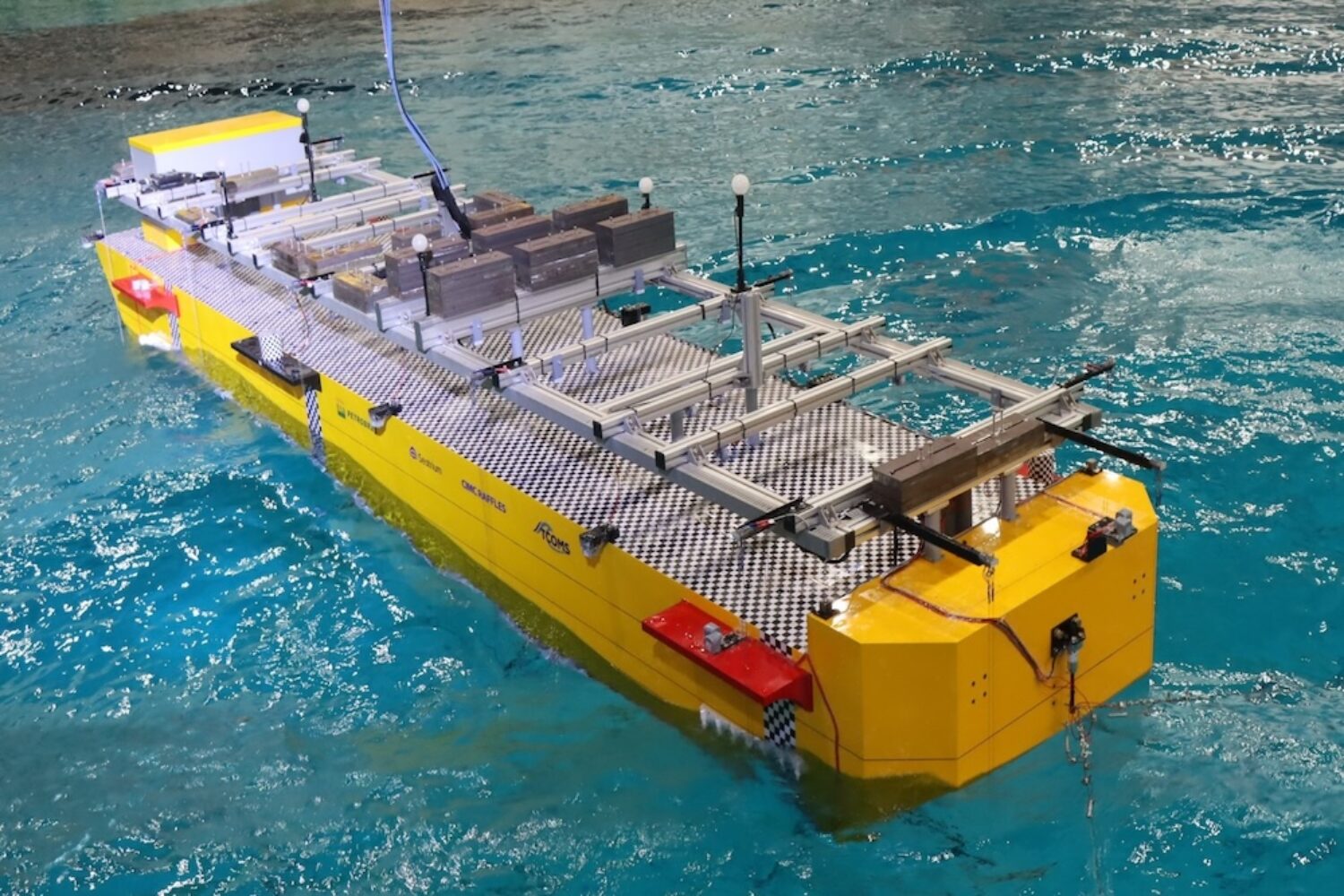Seatrium and TCOMS develop new cyber-physical capabilities to improve the performance and safety of floating power generation systems.
Singaporean state-owned Seatrium and the Technology Centre for Offshore & Marine, Singapore (TCOMS), have extended their Master Research Collaboration Agreement (MRCA) signed in April 2023 to explore cyber-physical modelling capabilities in predicting environmental stresses and platform responses. These include those that occur during the operation of floating production storage and offloading (FPSO) platforms in high seas and other extreme events.
In January last year, Seatrium became the first company to carry out a commercial test for an FPSO in TCOMS’ sea basin facility – a milestone in offshore technology. This strengthened TCOMS’ position as a research and development centre and led to Seatrium’s ocean basin facility being recognised as an approved test facility by industry partners.

Seatrium and TCOMS rely on digital twins for simulation
Following the completion of scaled model testing of the latest FPSO series being developed by Seatrium for Brazilian oil company Petróleo Brasileiro (Petrobras) at TCOMS’ ocean basin facility, both partners plan to create digital twins. These will use the extensive data collected during the tests to simulate and optimise real-life deployment scenarios in order to validate the global and stationary performance of the two organisations.
The FPSOs “P-84” and “P-85” will be deployed in the coming years in the Santos Basin, around 200 kilometres off the Brazilian coast of Rio de Janeiro. The platforms feature advanced technology and represent a new generation of offshore production facilities. With lower greenhouse gas emissions, they are expected to contribute to sustainability and a lower-carbon economy.
Innovation and sustainability in the offshore and marine industry
Seatrium and TCOMS have already carried out various projects in the past, covering a wide range of technological capabilities to drive innovation and sustainability in the offshore, marine and energy industries.
For example, the Seatrium-TCOMS Ocean Lab, which was established in March 2023, included five main research areas: (I) renewable offshore energy such as floating wind systems, (II) cleaner oil and gas solutions including smart floating production platforms, (III) smart ocean systems such as autonomous vessels and green ships. In addition, (IV) new energy solutions including ammonia, hydrogen and carbon capture, utilisation and storage (CCUS) and (V) digitalisation and data analytics for better predictability and reliability of marine systems and their infrastructure.
Numerical simulations and physical tests in the TCOMS ocean basin facility
Engineers and scientists from both companies are working together to develop, test and validate solutions and concepts for future marine systems and infrastructure. Numerical simulations and physical tests at TCOMS’ ocean basin facility are used to evaluate the performance of ocean systems – including conceptual designs – under simulated operational and extreme conditions.
Technologies such as smart sensing, artificial intelligence (AI) and data analytics are helping to improve the performance of these systems in real-world operations. Such modelling and simulation capabilities facilitate the creation of digital twins of marine infrastructure assets to improve lifecycle management.













